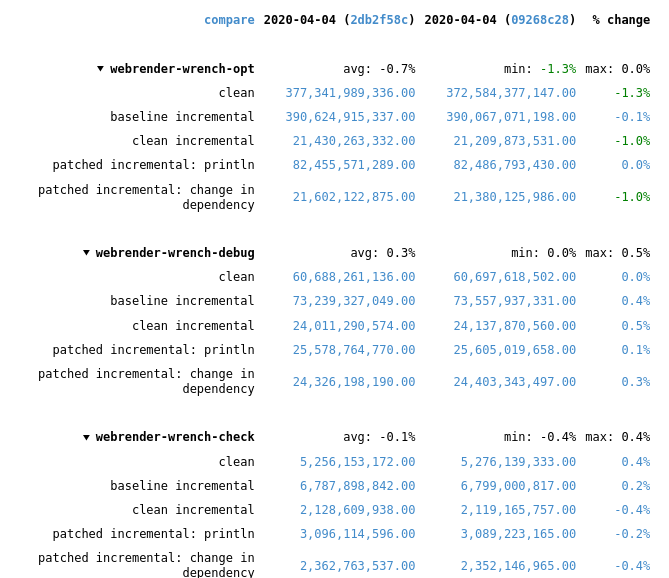Use Arc::clone and Rc::clone in documentation
This PR replaces uses of `x.clone()` by `Rc::clone(&x)` (or `Arc::clone(&x)`) to better match the documentation for those types.
@rustbot modify labels: T-doc
rename MaybeUninit slice methods
The `first` methods conceptually point to the whole slice, not just its first element, so rename them to be consistent with the raw ptr methods on ref-slices.
Also, do the equivalent of https://github.com/rust-lang/rust/pull/76047 for the slice reference getters, and make them part of https://github.com/rust-lang/rust/issues/63569 (so far they somehow had no tracking issue).
* first_ptr -> slice_as_ptr
* first_ptr_mut -> slice_as_mut_ptr
* slice_get_ref -> slice_assume_init_ref
* slice_get_mut -> slice_assume_init_mut
Enable some of profiler tests on Windows-gnu
CC https://github.com/rust-lang/rust/issues/61266
Because of force-push GitHub didn't let me reopen https://github.com/rust-lang/rust/pull/75184
Because of the GCC miscompilation, generated binaries either segfault or `.profraw` is malformed. Clang works fine but we can't use it on the CI.
However we can still test the IR for the proper instrumentation so let's do it.
BTreeMap: introduce marker::ValMut and reserve Mut for unique access
The mutable BTreeMap iterators (apart from `DrainFilter`) are double-ended, meaning they have to rely on a front and a back handle that each represent a reference into the tree. Reserve a type category `marker::ValMut` for them, so that we guarantee that they cannot reach operations on handles with borrow type `marker::Mut`and that these operations can assume unique access to the tree.
Including #75195, benchmarks report no genuine change:
```
benchcmp old new --threshold 5
name old ns/iter new ns/iter diff ns/iter diff % speedup
btree::map::iter_100 3,333 3,023 -310 -9.30% x 1.10
btree::map::range_unbounded_vs_iter 36,624 31,569 -5,055 -13.80% x 1.16
```
r? @Mark-Simulacrum
Respect `-Z proc-macro-backtrace` flag for panics inside libproc_macro
Fixes#76270
Previously, any panic occuring during a call to a libproc_macro method
(e.g. calling `Ident::new` with an invalid identifier) would always
cause an ICE message to be printed.
specialize some collection and iterator operations to run in-place
This is a rebase and update of #66383 which was closed due inactivity.
Recent rustc changes made the compile time regressions disappear, at least for webrender-wrench. Running a stage2 compile and the rustc-perf suite takes hours on the hardware I have at the moment, so I can't do much more than that.

In the best case of the `vec::bench_in_place_recycle` synthetic microbenchmark these optimizations can provide a 15x speedup over the regular implementation which allocates a new vec for every benchmark iteration. [Benchmark results](https://gist.github.com/the8472/6d999b2d08a2bedf3b93f12112f96e2f). In real code the speedups are tiny, but it also depends on the allocator used, a system allocator that uses a process-wide mutex will benefit more than one with thread-local pools.
## What was changed
* `SpecExtend` which covered `from_iter` and `extend` specializations was split into separate traits
* `extend` and `from_iter` now reuse the `append_elements` if passed iterators are from slices.
* A preexisting `vec.into_iter().collect::<Vec<_>>()` optimization that passed through the original vec has been generalized further to also cover cases where the original has been partially drained.
* A chain of *Vec<T> / BinaryHeap<T> / Box<[T]>* `IntoIter`s through various iterator adapters collected into *Vec<U>* and *BinaryHeap<U>* will be performed in place as long as `T` and `U` have the same alignment and size and aren't ZSTs.
* To enable above specialization the unsafe, unstable `SourceIter` and `InPlaceIterable` traits have been added. The first allows reaching through the iterator pipeline to grab a pointer to the source memory. The latter is a marker that promises that the read pointer will advance as fast or faster than the write pointer and thus in-place operation is possible in the first place.
* `vec::IntoIter` implements `TrustedRandomAccess` for `T: Copy` to allow in-place collection when there is a `Zip` adapter in the iterator. TRA had to be made an unstable public trait to support this.
## In-place collectible adapters
* `Map`
* `MapWhile`
* `Filter`
* `FilterMap`
* `Fuse`
* `Skip`
* `SkipWhile`
* `Take`
* `TakeWhile`
* `Enumerate`
* `Zip` (left hand side only, `Copy` types only)
* `Peek`
* `Scan`
* `Inspect`
## Concerns
`vec.into_iter().filter(|_| false).collect()` will no longer return a vec with 0 capacity, instead it will return its original allocation. This avoids the cost of doing any allocation or deallocation but could lead to large allocations living longer than expected.
If that's not acceptable some resizing policy at the end of the attempted in-place collect would be necessary, which in the worst case could result in one more memcopy than the non-specialized case.
## Possible followup work
* split liballoc/vec.rs to remove `ignore-tidy-filelength`
* try to get trivial chains such as `vec.into_iter().skip(1).collect::<Vec<)>>()` to compile to a `memmove` (currently compiles to a pile of SIMD, see #69187 )
* improve up the traits so they can be reused by other crates, e.g. itertools. I think currently they're only good enough for internal use
* allow iterators sourced from a `HashSet` to be in-place collected into a `Vec`
The InPlaceIterable debug assert checks that the write pointer
did not advance beyond the read pointer. But TrustedRandomAccess
never advances the read pointer, thus triggering the assert.
Skip the assert if the source pointer did not change during iteration.
rustdoc: do not use plain summary for trait impls
Fixes#38386.
Fixes#48332.
Fixes#49430.
Fixes#62741.
Fixes#73474.
Unfortunately this is not quite ready to go because the newly-working links trigger a bunch of linkcheck failures. The failures are tough to fix because the links are resolved relative to the implementor, which could be anywhere in the module hierarchy.
(In the current docs, these links end up rendering as uninterpreted markdown syntax, so I don't think these failures are any worse than the status quo. It might be acceptable to just add them to the linkchecker whitelist.)
Ideally this could be fixed with intra-doc links ~~but it isn't working for me: I am currently investigating if it's possible to solve it this way.~~ Opened #73829.
EDIT: This is now ready!
The optimization meant that every extend code path had to emit llvm
IR for from_iter and extend spec_extend, which likely impacts
compile times while only improving a few edge-cases